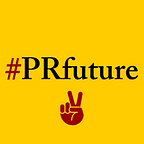USC Annenberg’s 2021 Global Communication Report Addresses How PR Pros Can Counsel on Polarizing Issues
Posted By Ron Antonette
In our 2021 Global Communication Report, as a follow-up to last year’s report on “New Activism,” we examine how the polarization of issues that has pitted half the U.S. populations vs. the other half can be addressed by PR professionals, their companies and their clients.
Our report, “Politics, Polarization and Purpose,” reviewed the findings from a pair of surveys we conducted in December 2020 to understand the election’s impact polarization and, in turn, public relations. Our hypothesis was that even though polarization is driven by politics it’s primarily a communication problem, which should be addressed by professional communicators.
In many ways, the 2020 election was a game changer, but our research shows it isn’t likely to change polarization. Polarization represents an aggregate of arguments across a dynamic range of topics that Americans feel strongly about: Climate change, racial equality, police reform, affordable healthcare and immigration are five that PR pros cited in our survey this year. Each are complex, long-term challenges that deserve serious attention.
The full report and our recommendations for how communication professionals should engage on issues and with activists is available for download at annenberg.usc.edu/gcr.
Some highlights from the data that we share in the report:
- Regardless of their political leanings, nearly 9 of 10 Americans say their commitment to social change will stay the same or increase the next 4 years.
- PR people have a lot in common with regular Americans, but they’re more liberal. Communicators forecast greater expansion in women’s rights, immigration and access to healthcare the next 4 years.
- PR pros’ optimism doesn’t extend to polarization: 45% predict an increase in polarization the next 4 years compared to 31% of the general public.
- A majority of PR pros predict activists will place more demands on U.S. corporations under the Biden administration. They anticipate consumers will increasingly base purchase decisions on perception of their company’s values, and character of the CEO.
- The diversity of the PR workforce, already a high priority, is predicted to see the most positive improvement during the Biden era.
- More than 3/4 of journalists we surveyed predict the spread of fake news and the proliferation of conspiracy theories will stay the same or increase over the next 4 years. These malicious sources of disinformation are significant contributors to the decay of truth and the polarization of opinion.
- 35% of journalists forecast a decline in consumer consumption of traditional news, while 77% predict the spread of fake news and the proliferation of conspiracy theories will stay the same or increase during the Biden administration.
- 78% of journalists and PR pros surveyed said the credibility of the White House Communication team will increase over the next 4 years.
- We believe business can and will play an increasing role in bridging the divide: 36% of corporate PR pros forecast they will be more likely to take a public stand on societal issues.
Overall, there are more than enough optimistic people to form a foundation for building better communication. Women are more hopeful about the future than men. They will be a driving force in reducing polarization. Younger Americans are more energized than their parents. They will expend that energy tackling the problems they care deeply about.
Methodology
The data for the 2021 Global Communication Report was collected through two online surveys fielded by the USC Annenberg Center for Public Relations (CPR). The first survey encompasses 940 responses from communication professionals and 519 responses from journalists, was distributed through email lists, social media channels and by Muck Rack, and was live between November 30, 2020, and January 6, 2021. The second survey of 833 U.S. residents was a representative sample conducted for USC Annenberg by Qualtrics from December 1–4, 2020. All survey responses reflect opinions based on Joe Biden taking office on January 20.
